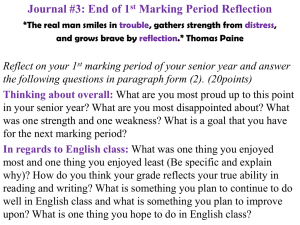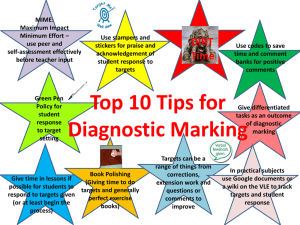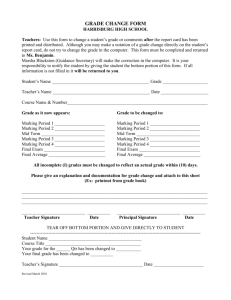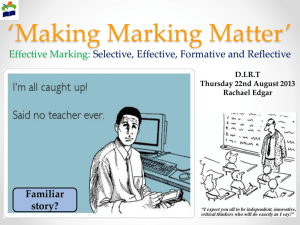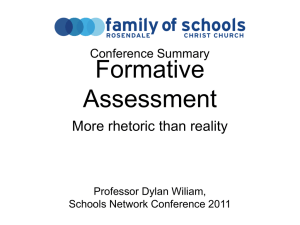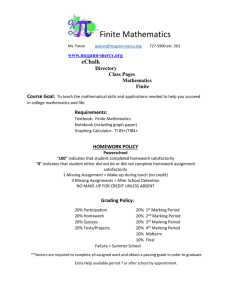Ma - Cotton End Primary School
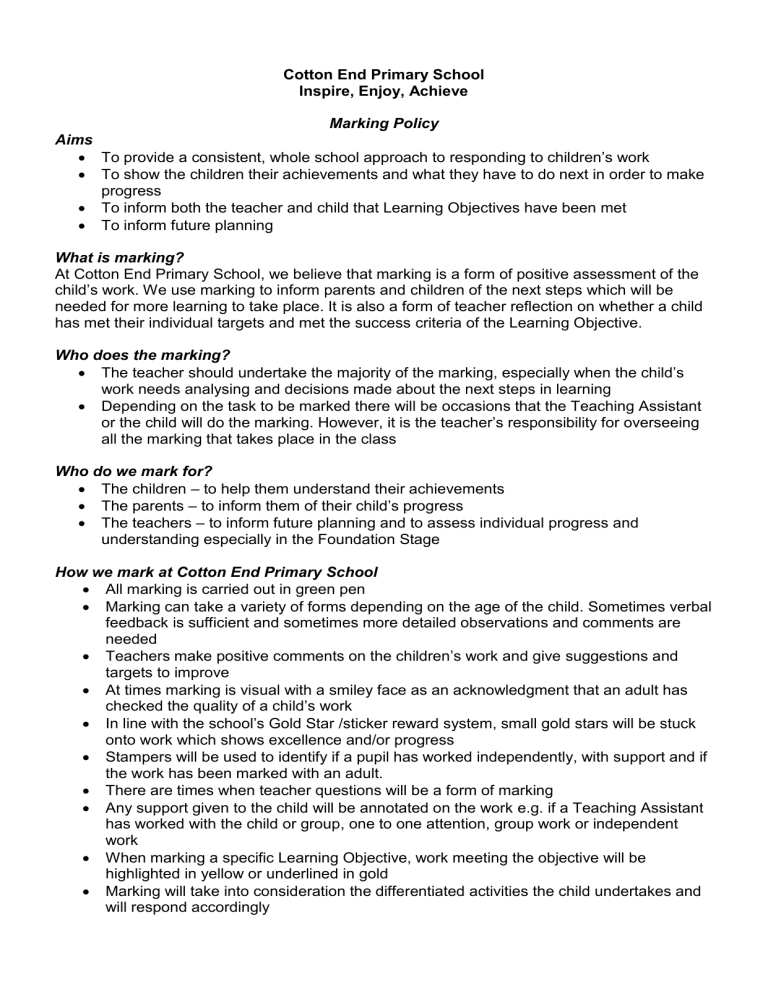
Cotton End Primary School
Inspire, Enjoy, Achieve
Marking Policy
Aims
To provide a consistent, whole school approach to responding to children’s work
To show the children their achievements and what they have to do next in order to make progress
To inform both the teacher and child that Learning Objectives have been met
To inform future planning
What is marking?
At Cotton End Primary School, we believe that marking is a form of positive assessment of the child’s work. We use marking to inform parents and children of the next steps which will be needed for more learning to take place. It is also a form of teacher reflection on whether a child has met their individual targets and met the success criteria of the Learning Objective.
Who does the marking?
The teacher should undertake the majority of the marking, especially when the child’s work needs analysing and decisions made about the next steps in learning
Depending on the task to be marked there will be occasions that the Teaching Assistant or the child will do the marking. However, it is the teacher’s responsibility for overseeing all the marking that takes place in the class
Who do we mark for?
The children – to help them understand their achievements
The parents – to inform them of their child’s progress
The teachers – to inform future planning and to assess individual progress and understanding especially in the Foundation Stage
How we mark at Cotton End Primary School
All marking is carried out in green pen
Marking can take a variety of forms depending on the age of the child. Sometimes verbal feedback is sufficient and sometimes more detailed observations and comments are needed
Teachers make positive comments on the children’s work and give suggestions and targets to improve
At times marking is visual with a smiley face as an acknowledgment that an adult has checked the quality of a child’s work
In line with the school’s Gold Star /sticker reward system, small gold stars will be stuck onto work which shows excellence and/or progress
Stampers will be used to identify if a pupil has worked independently, with support and if the work has been marked with an adult.
There are times when teacher questions will be a form of marking
Any support given to the child will be annotated on the work e.g. if a Teaching Assistant has worked with the child or group, one to one attention, group work or independent work
When marking a specific Learning Objective, work meeting the objective will be highlighted in yellow or underlined in gold
Marking will take into consideration the differentiated activities the child undertakes and will respond accordingly
Children will be given time to respond to teachers’ comments and correct work if necessary
All teacher or adult comments on children’s work should be legible and clear in meaning
Any mistakes should be identified with a dot and not a ‘x’
Children are also involved in self assessment and evaluation by using a traffic lights system at the end of a lesson, placing a dot on the left hand side of their book
The traffic light system could work as follows depending upon the activity: o Place mats of a red face
, orange face
and green face
are put onto the floor at the end of a lesson, the children stand near the appropriate mat and a
Teaching Assistant records their names o Children in KS2 have an individual traffic light card which they show to the teacher at the end of a lesson o Children may use a thumbs up/down sign to show level of understanding and achievement of Learning Objectives
Marking in the Foundation stage
Where the children have worked in books, the teacher will write a comment for the parents and children
There will also be a tick sheet for observations of Learning Objectives and practical activities
Post-it notes are also written by the adults to inform children
’s progress and achievements towards the Early Learning goals
Children in EYFS show understanding by thumbs up/down to class teacher
Monitoring and Evaluating of marking
Subject Leaders will monitor books on a Termly basis
Staff meetings are used to leve l children’s work in writing and mathematics
The Headteacher scrutinises books on a Termly basis
Reviewed October 2011 with staff
Karen Headland
Presented to Governors October 2011
Review date October 2013
